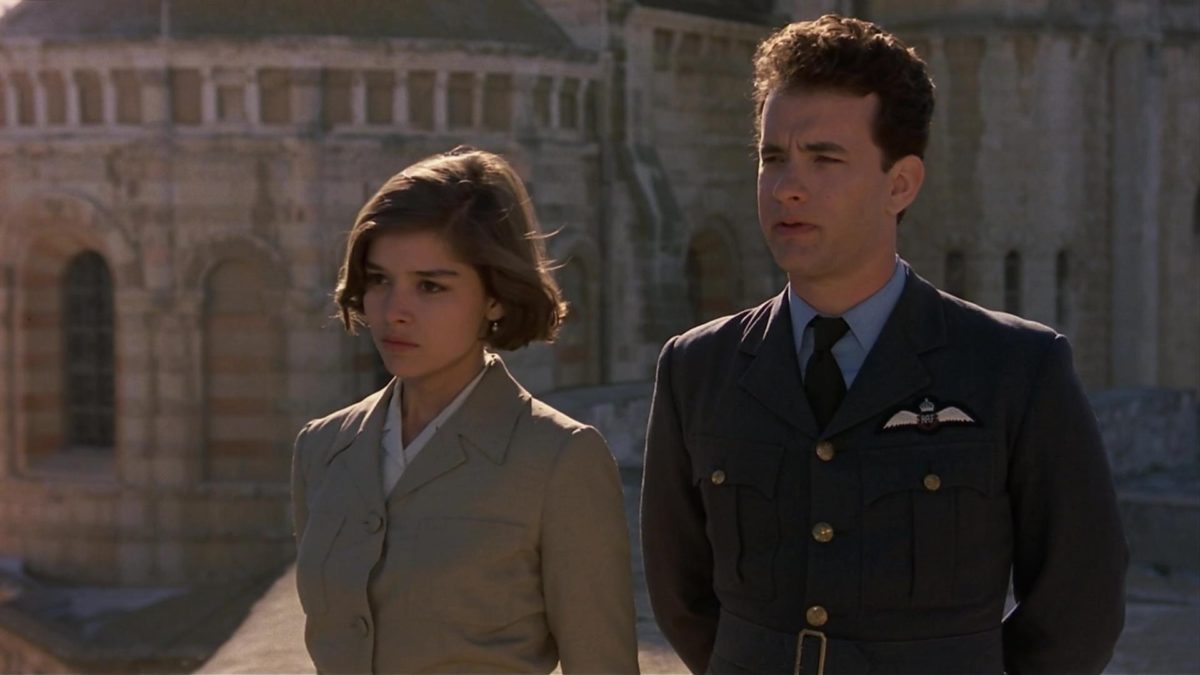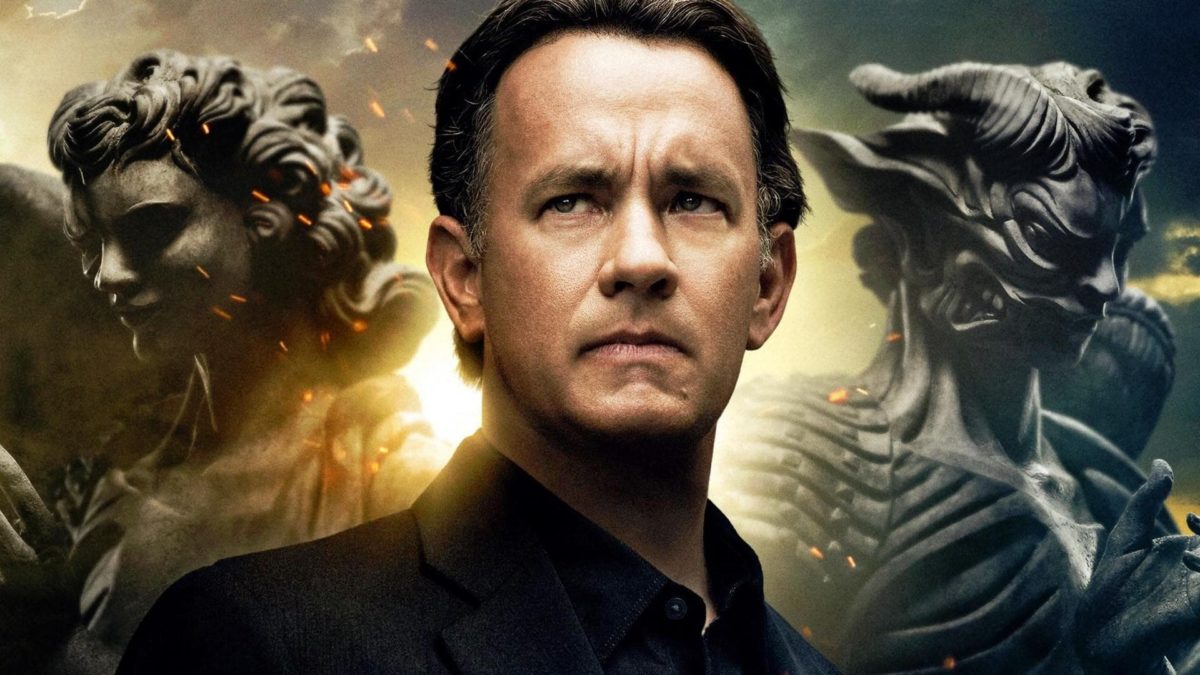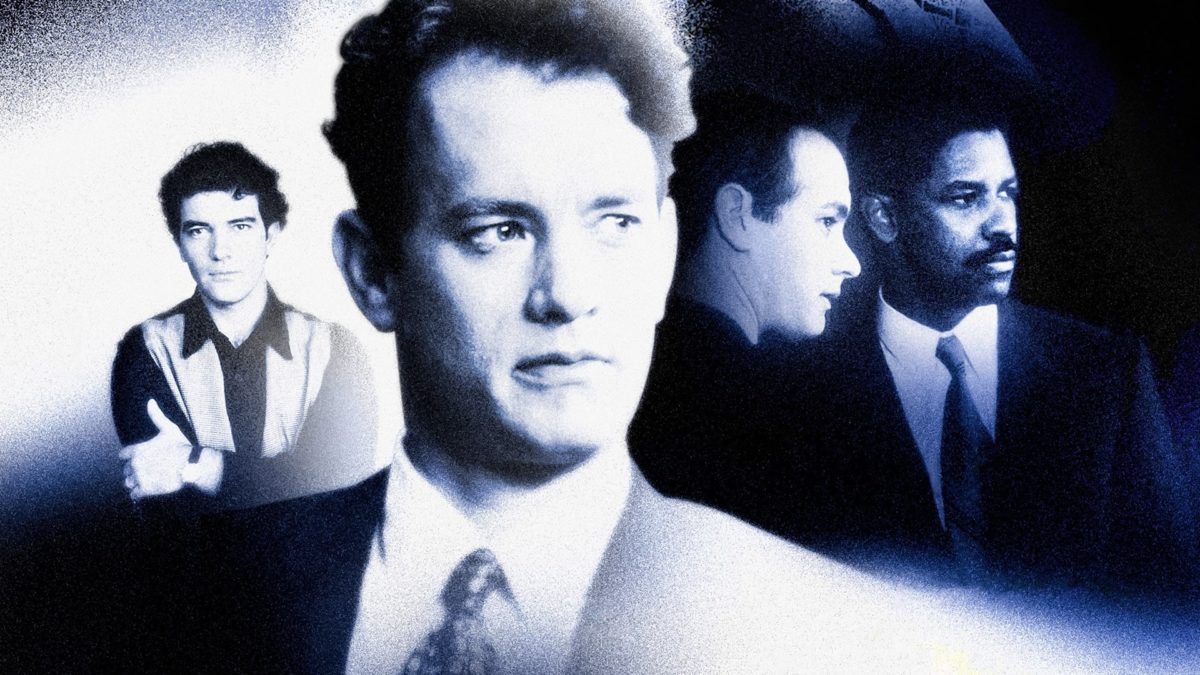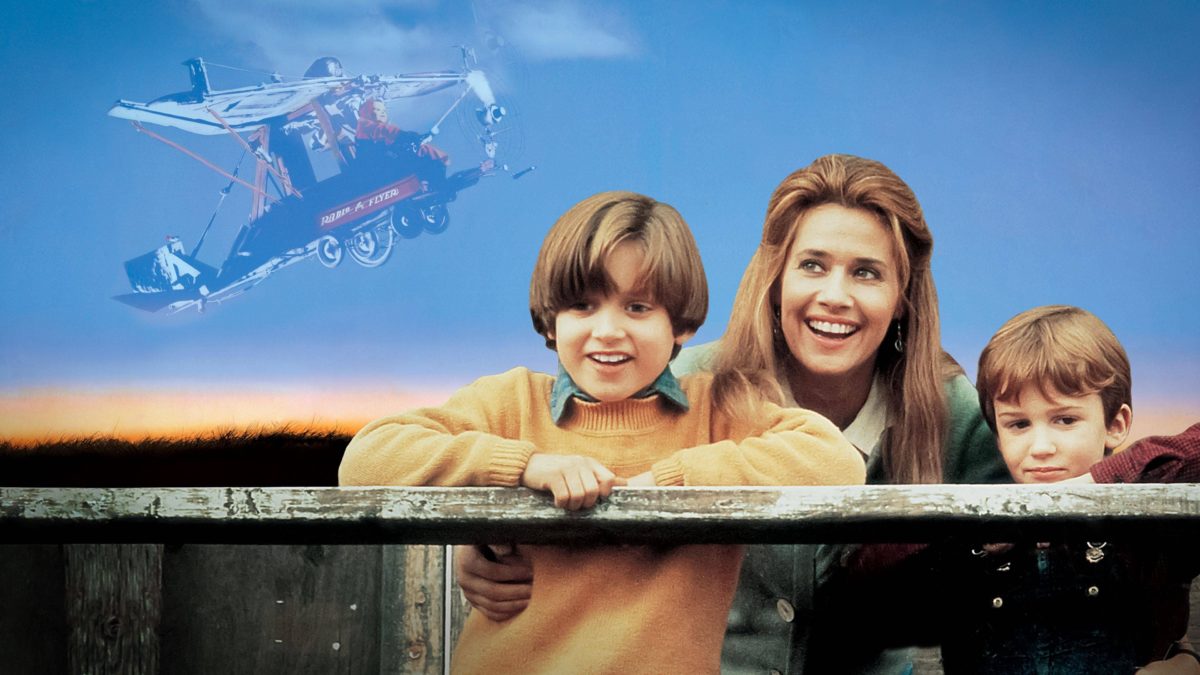Here’s something out of left field: a small, earnest, internationally co-produced romantic drama starring baby-faced Tom Hanks—his very first dramatic role, if you don’t count TV movies. Every Time We Say Goodbye is a low-budget 1986 oddity, shot largely in Jerusalem, and maybe best known today (if at all) for being Hanks’ lowest-grossing theatrical release.
The film is a World War II riff on Romeo and Juliet without too much grace. Hanks plays David, a downed American pilot flying for the Royal Air Force, recuperating in British-controlled Jerusalem. Cristina Marsillach plays Sarah, a soft-spoken young woman from a deeply traditional Sephardic Jewish family. Despite coming from different worlds—he’s a Protestant minister’s son; she’s bound to her family’s expectations and customs—they keep bumping into each other. Then walking together. Then sighing. Then falling in love. Their courtship unfolds in long, wistful glances and short, soft exchanges, the kind of doomed slow burn where the tragedy feels like a given from minute one.
The film’s biggest asset is probably its cultural specificity. Sarah’s family speaks Ladino (Judeo-Spanish) at home, an authentic and rarely-seen detail that gives the film an unexpected anthropological value. There’s a sense of lived-in specificity to the household, from the cluttered Sabbath dinners to the quiet maternal surveillance. The cultural friction that drives the central romance has some genuine spark, even if the screenplay doesn’t always know what to do with it.
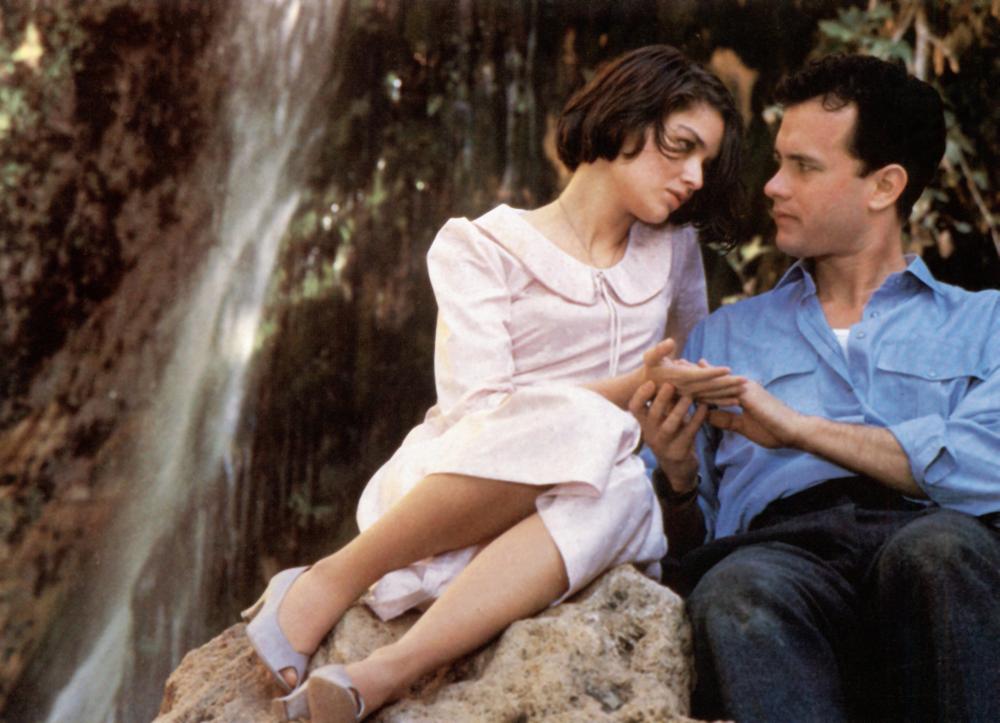
As for Hanks, the dramatic instincts aren’t quite fully-baked yet. His signature puppy-dog charisma mostly works, and he’s absolutely trying, but there are moments where his natural comic energy, not yet modulated for movie drama, bubbles up in odd ways. A crucial romantic crescendo late in the film is a good example: Hanks’ character is vulnerable and heartbroken, but the actor shouts a key line so abruptly that it knocks the mood out cold. Still, he’s easily the most watchable thing here. Even when the film sags, Hanks gives it a pulse. You can feel the movie banking on his magnetism, hoping it’s enough to carry scenes where not much else is going on.
Unfortunately, that doesn’t quite carry the movie. Too much of it is bland drama with clunky writing. Marsillach is fine—her softness balances Hanks’ energy—but their chemistry doesn’t quite sizzle. It simmers politely. By the time the will-they-won’t-they wraps up, you’re not heartbroken so much as relieved.
Every Time We Say Goodbye isn’t bad. It’s decently made, mildly interesting, occasionally pretty. But it’s also the kind of movie that evaporates from memory as soon as the credits roll. If you’re a Tom Hanks completionist you might find it a not-unpleasant curio. Everyone else can safely say goodbye.

